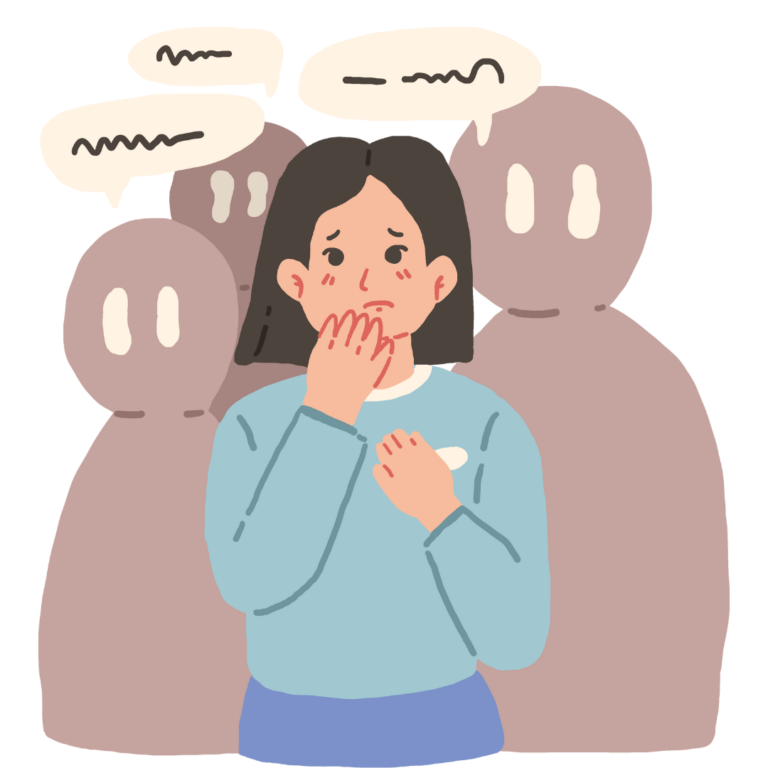So you’ve been invited to a hangout with all your best friends. You are super excited to meet up with them and catch up on all the drama since you’ve seen each other, however you feel anxious at the thought of things not being the same or them judging you. When you arrive at the meetup everything gets a little foggy and it feels like you’re not really engaging with them at all, in fact it feels like you’re not even really there. This is a common experience among teenagers and is classified as dissociation.
More specifically, dissociation is defined as the disconnect of one’s thoughts, emotions, feelings, and actions (Better Health). When experiencing it you may feel like you are not present in a situation, or that you are just watching yourself live out certain aspects of your life. Feelings of dissociation can be gradually experienced or acute depending on the situation that it is triggered by.
Oftentimes this disconnect is utilized by your brain as a defense mechanism when anxiety or stress is anticipated to be experienced in a situation (Swaim 2022). To avoid this stress, your brain triggers this disconnect in order to shut down or prevent these feelings from manifesting and interfering with the given situation. This allows you to calmly get through it, but at the same time leaves you with the uneasy feeling of being disconnected to yourself and your experiences. Dissociation can also be triggered after a traumatic event of some sort in order to prevent a person from feeling and experiencing the negative emotions and repercussions of said event.
This defense mechanism is also associated with multiple other mental health conditions. Some examples being PTSD, cognitive disorganization, anxiety, and depression (Černis et al 2021). Moving forward, although dissociation may be an effective defense mechanism it does not mean that it is always healthy. Researcher Aida Alayarian in her research published in the Journal of Analytical Psychology on unhealthy forms of dissociation in relation to trauma explains that there are healthy and unhealthy forms of dissociation (2019).
She explains that she identifies dissociation as unhealthy when it manifests in hysteria, loss of memory, identity diffusion, depersonalization, etc. All more severe issues than an initial dissociative episode. This unhealthy form of dissociation is experienced when a person undergoes a significant amount of trauma, so it may be uncommon to experience as a normal teenager but is important to note when discussing the extent of dissociative defense mechanisms.
On a less extreme note, dissociative disorders, the most common form in teenagers being depersonalization/derealization disorder, are also unhealthy repetitive manifestations of dissociation. These disorders develop when dissociation as a defense mechanism becomes maladaptive and interferes with a person’s daily life. Derealization/depersonalization focuses on the disconnect discussed earlier and when a person has this disorder they feel detached from their mind, body, and even surroundings (Drescher 2022).
If you are experiencing dissociation consistently there are many ways to combat it. However if you have the opportunity you should bring it up when seeing your doctor or mental health professional.
Additional articles on this topic and dealing with dissociation are in the making.
Written By: Carmela Gonzalez, Mental H2O Youth Resource Writer
References:
Alayarian, Aida. “Trauma, Resilience and Healthy and Unhealthy Forms of Dissociation.” Journal of Analytical Psychology, vol. 64, no. 4, 16 Aug. 2019, pp. 587–606, https://doi.org/10.1111/1468-5922.12522.
Better Health. “Dissociation and Dissociative Disorders.” Vic.gov.au, 17 Feb. 2023, www.betterhealth.vic.gov.au/health/conditionsandtreatments/dissociation-and-dissociativ e-disorders.
Černis, Emma, et al. “Dissociation in Relation to Other Mental Health Conditions: An Exploration Using Network Analysis.” Journal of Psychiatric Research, vol. 136, Apr. 2021, pp. 460–467, https://doi.org/10.1016/j.jpsychires.2020.08.023.
Drescher, Jack. “What Are Dissociative Disorders?” Psychiatry.org, American Psychiatric Association, Oct. 2022,
www.psychiatry.org/patients-families/dissociative-disorders/what-are-dissociative-disorders.
Swaim, Emily. “Why Dissociation Happens and How to Handle It.” Healthline, 7 Nov. 2022,
www.healthline.com/health/mental-health/dissociative-defense-mechanism.


